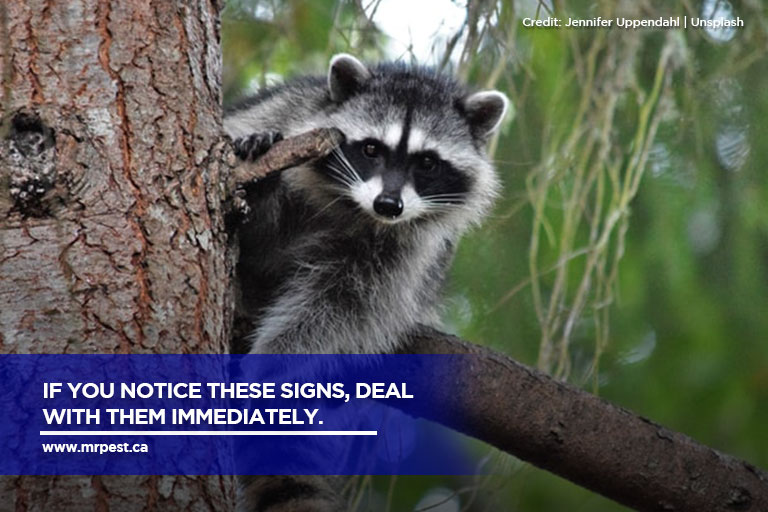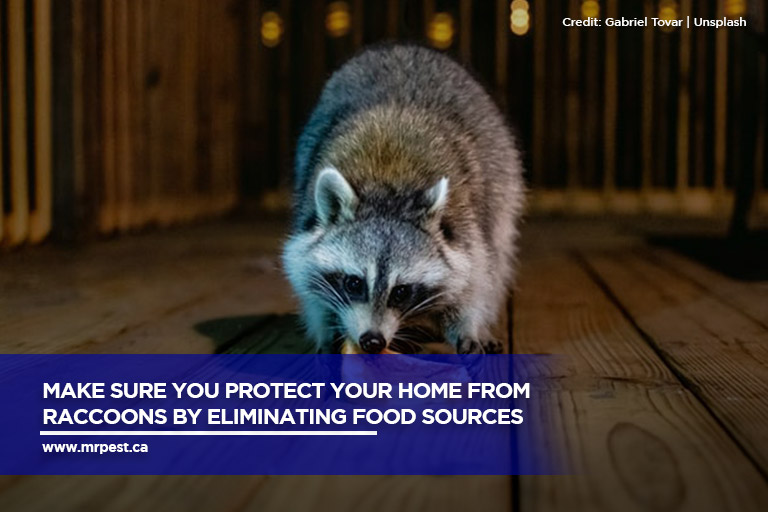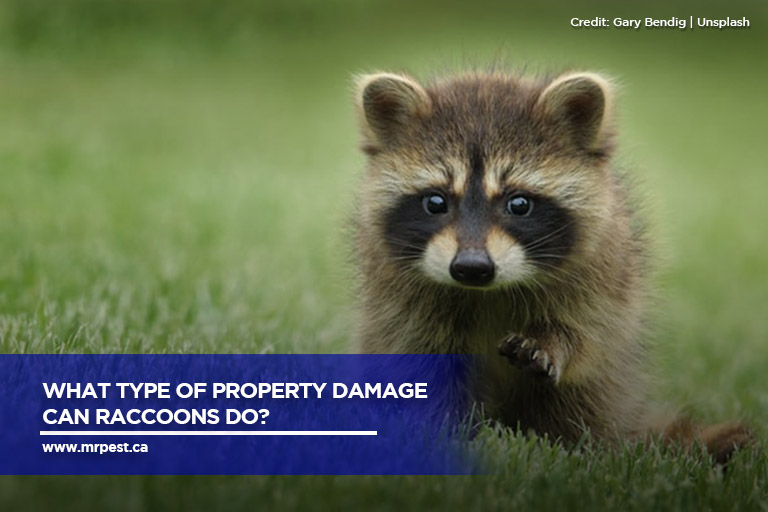You may have heard about the health risks posed by raccoons. Raccoons’ bites are hazardous, causing major health problems. Raccoons, on the other hand, not only pose a health risk but can also inflict significant property damage. Recognize the warning signs so you may respond quickly. A raccoon may cause a lot of damage, so here’s how to deal with it.
Signs of a Raccoon Infestation

When you see raccoons or a family of raccoons near your home, you don’t always have to be concerned. What you need to be concerned about is when they seek refuge in your home and inhabit it.
Like other house pests, raccoons can leave any number of clues. Some signs to look for to determine if and where raccoons live on your property include:
- unusual noises (scratching sounds, chittering, or squeals)
- droppings or traces of urine (typically near piles of wood or bottom areas of trees)
- raccoon tracks (resembling tiny human footprints)
Property Damage That Raccoons May Cause

It can be quite pricey to have a home fixed. Preventing home damage can save you a great deal of money and it can also keep you safe. Here are some things you need to watch out for:
- Roof Damage
Raccoons may cause roof damage while hunting for a spot to call home. When seeking a nesting site, female raccoons are usually the most disruptive. If your roof has no openings, the raccoon will look for one. They’ll rip off some of the shingles, such as weak spots (in places where they’re about to fall off) so they can easily obtain access. Raccoons can also rip off soffit vents to gain access to your attic and cause damage. Check your mesh covers, eaves, vent openings, and roof for small holes and tears. - Insulation Damage
Raccoons are large and powerful animals. Even if they only walk about your attic, they can trample and destroy your insulation because they can weigh up to 14 kilograms. Homes, particularly those with electrical wiring located in their attics or near the insulation, may suffer damage. - HVAC Damage
Raccoons can also damage HVAC (heating, ventilation, and air conditioning). Raccoons prefer to hide in places where there’s little chance of people noticing them. They can break into the pipes or tubes of your HVAC system and rip it apart, or they’ll leave their droppings and urine behind. This can lead to poor air quality. Most people will notice a decline or difference in their HVAC and will have it checked right away. However, some may not notice until there has been significant damage and they will have to spend a considerable amount of money on repairs. Always be on the lookout for any changes in your HVAC system. - Wall Damage
If you have any wall voids or regions where the walls are very thin, raccoons may be able to obstruct the area or claw and tear their way through it. If you notice fresh holes in your walls, this is usually an indication that a pest has entered your home. Raccoons, like rats, are quite imaginative and inventive when it comes to finding a spot to build their nest. They can build a home in just about any place. If you have gaps between your walls, listen to see how mobile the raccoons are and search for ways to trap or lure them out as soon as possible. If they’re in a difficult-to-reach location, always seek professional assistance. - Lawn Damage
Raccoons also enjoy digging through lawns in search of food. After a raccoon has located some food by digging through your lawn, they may return time and time again. They can destroy any lighting fixtures, furniture, or decorations you have on your lawn. Installing water sprinklers is one approach to protect your home from raccoon damage. Some water sprinklers have motion censors, so they spray water as soon as they detect movement from raccoons or other pests.
The easiest technique to keep raccoons out of your house is to remove all available food sources for them so they don’t return and establish a nest in your home. Also, if you have any holes or small openings in your roof, ceilings, or walls, make sure they’re sealed so raccoons don’t come in.
If you notice evidence of an infestation, act quickly to prevent the raccoons from causing further damage to your home. Being aware is always the first step in home upkeep and safety. Always be on the lookout for indicators of an infestation and seek professional assistance if you notice them.
For your pest control needs in Collingwood, give us a call at 705-739-7378 or send us an email at peteb@mrpest.ca. If your home has been damaged by raccoons, let us help you.


